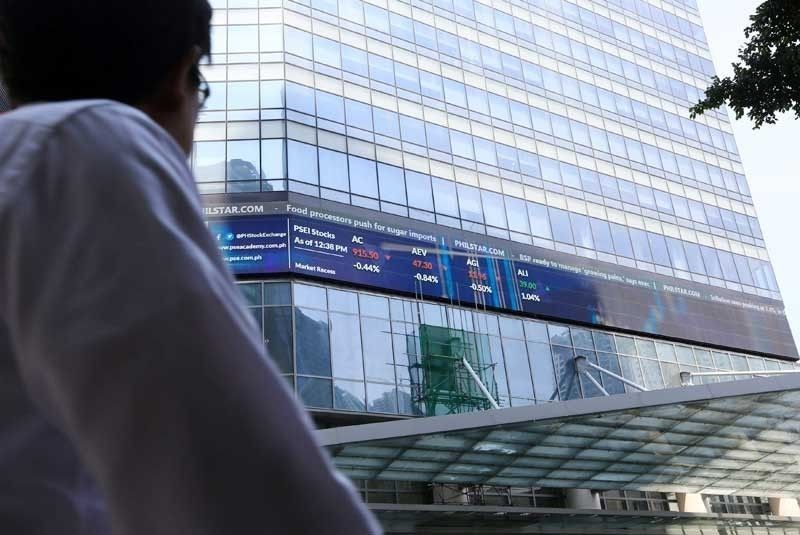Worst PSEi crash since 2012 triggers ‘circuit breakers’

After a brief couple of days of stability, panic returned to the trading floor after the World Health Organization (WHO) declared the spread of the new virus was officially a pandemic, sending the bellwether Philippine Stock Exchange index (PSEi) down 6.23% or 395.91 points to 5,957.35 at market recess.
By Ian Nicolas Cigaral
MANILA, Philippines — Philippine stocks collapsed Thursday, triggering a rare brief halt in trading after local shares sank into a territory not seen in more than seven years.
As in most trading days this week, analysts said investors remained wary of the spread of coronavirus disease-2019 to a pandemic level, as declared by the World Health Organization. A US travel ban against Europe and an ongoing oil clash in the Middle East to capture customers are also not helping buoy the bearish sentiment.
After a temporary stability in the past couple of days, panic returned to the trading floor of the Philippine Stock Exchange, where the index plummeted 9.71% or 616.99 points to close at 5,736.27.
It was PSEi’s lowest level since December 16, 2012 when it closed at 5,636.59. The meltdown was so severe that regulators were forced to activate “circuit breakers” for 15 minutes, stopping trading only the second time since the global financial crisis in 2008, after the main index crashed by 10.33% to an intraday low of 5,697.13.
Under the PSE’s circuit breaker rule, trading will be halted for 15 minutes if the main index drops by at least 10% to give investors time to digest the situation.
While Thursday’s brief trading pause did not stop the sell-off, it did help PSEi pare some losses.
“It’s been a sad news for our local markets that suffered this much, even breaching below the 6,000-level,” said Piper Chaucer Tan, client engagement officer and research associate at Philstocks Financial Inc.
“Global markets are also crashing amid COVID-19, followed by the oil price war. We see this as a health and economic downfall for the world,” Tan added.
Broken down, all subindices were bleeding, led by mining and oil which dropped 12.76%, followed by property (-10.82%), financials (-10.12%), holding firms (-10.03%), services (-7.11%) and industrial (-6.34%)
Decliners trumped advancers, 226 to7.
Anxiety over the global spread of the virus were felt even at the foreign exchange market, although the weakening of the Philippine peso was more tempered. The local currency depreciated to P50.85 versus the greenback from its previous finish of P50.55.
Asian markets were already a sea of red at the open, with traders taking their lead from a global rout after WHO declared the current rate of COVID-19 infection a pandemic, an indication that global coordination is needed to put the situation under control.
In the Middle East, Saudi Arabia has begun producing more oil after the collapse of talks among oil-producing nations this week. What was supposed to be a meeting to cap an oil price decline due to low demand from China, became a price war between Saudi Arabia and other suppliers like Russia.
US President Donald Trump added to investors’ concerns, after he imposed a 30-day travel ban between the US and Europe as a containment measure against the deadly virus, which has engulfed Italy to become among the areas outside China with the most number of infections.
Regional downtrend persists
PSEi tracked down a bearish regional sentiment. Tokyo ended down 4.4%, while Sydney lost 7.4% in the ASX 200’s worst day since the financial crisis. Hong Kong fell 3.5% in the afternoon while Shanghai was off 1.5%.
Stock markets in Seoul, Singapore and Jakarta each lost more than three percent, while Mumbai tanked more than six percent and Bangkok more than eight percent.
Wellington lost 5% and Taipei retreated 4.3%.
As for foreign exchange, the Japanese yen, a key safe haven in times of crisis, jumped more than one percent against the dollar. Emerging market currencies lost ground.
“Trump travel ban: sell, sell, sell is being heard across dealing rooms in Asia,” wrote Stephen Innes, global chief markets strategist at AxiCorp.
“Travel restrictions equal slower global economic activity, so if you need any more coaxing to sell… after a massively negative signal from overnight trading in US markets, it just fell in your lap,” he added.
For Philstocks’ Tan, the PSEi is unlikely to recover from the bloodletting anytime soon.
“We got to understand that the market moves in cycles that eventually things will normalize… we think that this may not be the time for the market to have a big bounce back,” he said.
“We may see some recovery but this will be for the short term. At least we are looking at 1H 2020 (first half of 2020) for the sentiments to subside if the virus has been contained during those time and oil supply issues have been resolved,” he added.
Source: The Philippine Star

